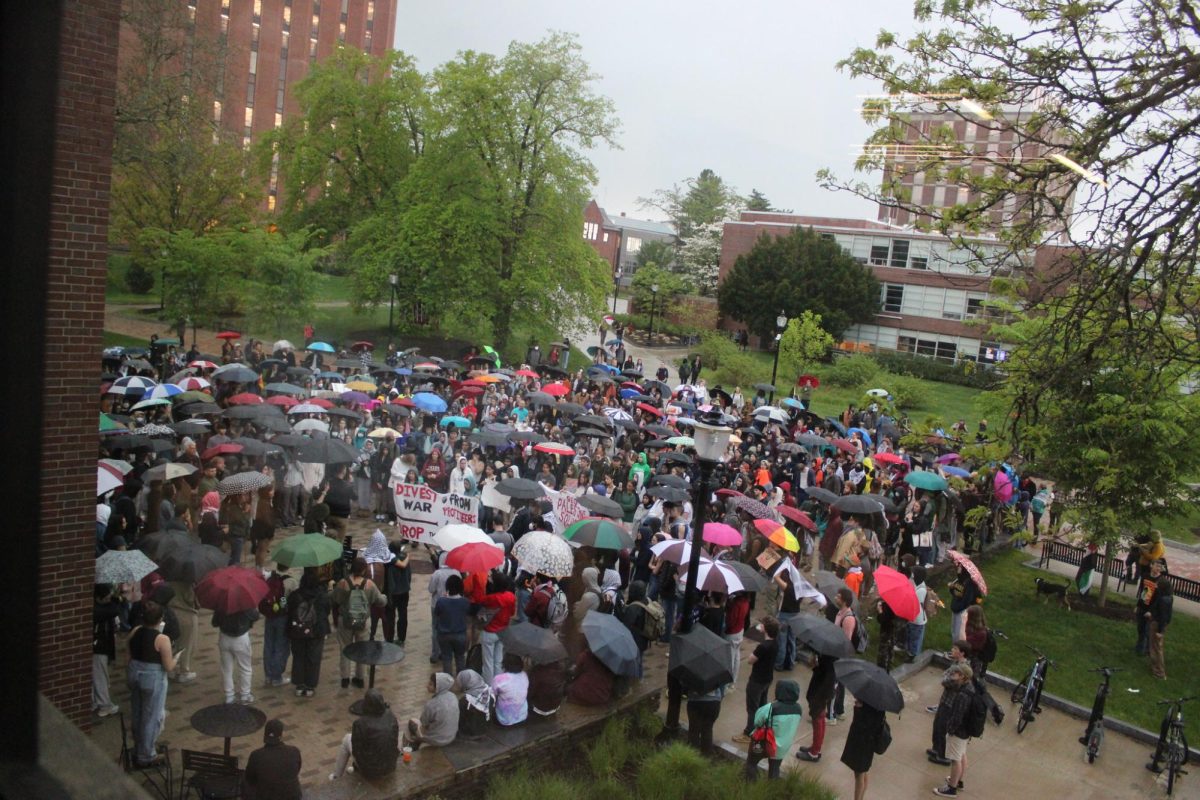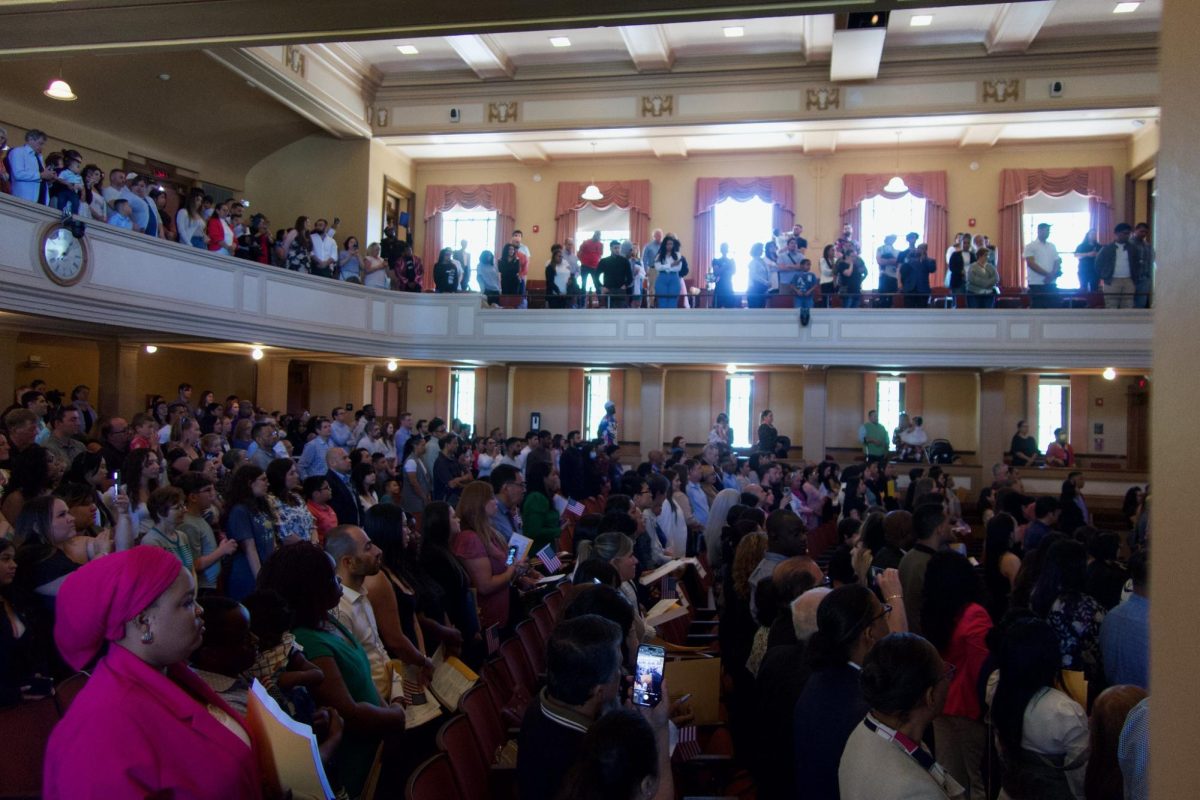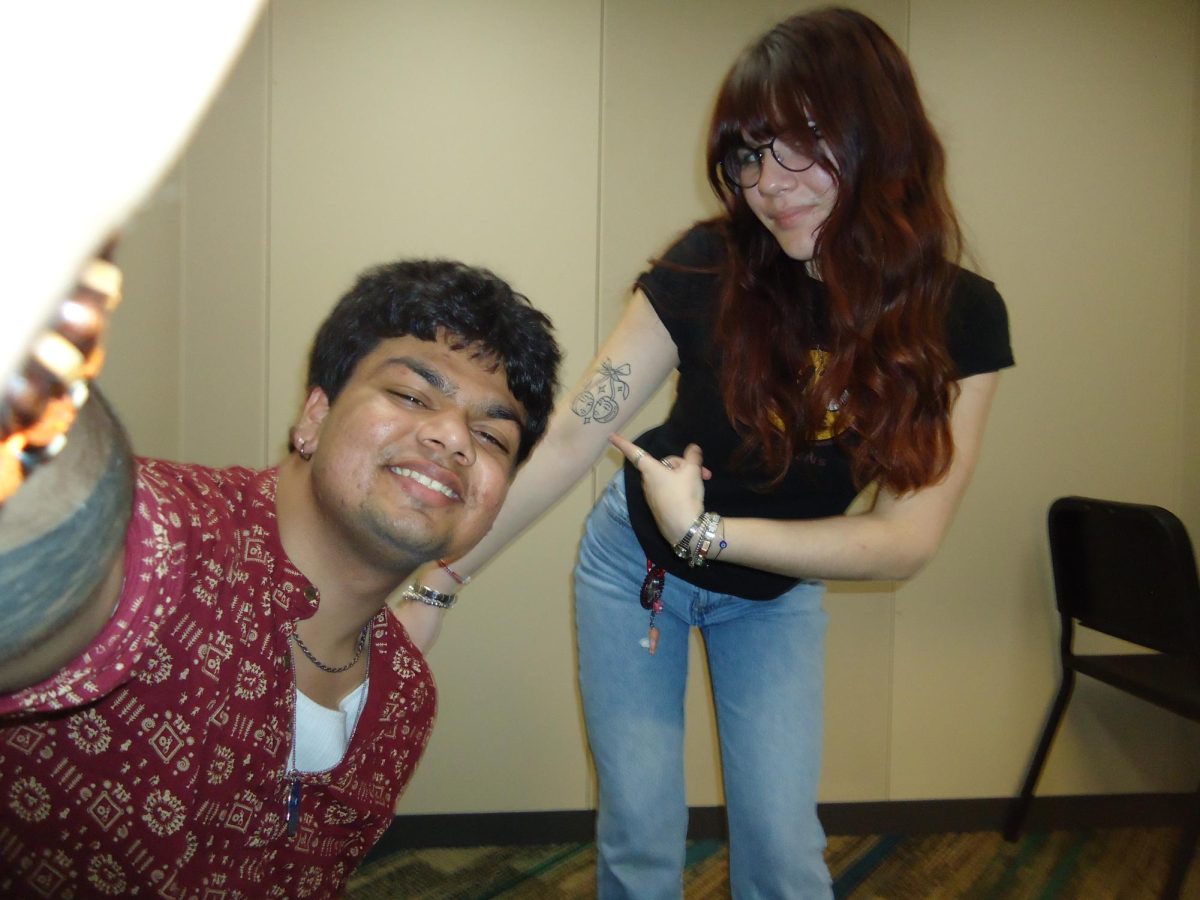As the world prepares for the 2008 Summer Olympic Games in Beijing, China, all eyes have been on China. The international spotlight has renewed controversy over China’s role in Tibet, with rallies and protests erupting along the Olympics’ torch relay route. Last Friday afternoon, local activists marched nearly nine miles in support of Tibet.
Friday’s rally was held to raise awareness for the Tibetan cause but also to demand the release of the Panchen Lama, who is considered the second most Tibetan spiritual authority, after the Dalai Lama. Friday was the Panchen Lama’s 19th birthday. Tibetan activists say the boy was abducted at the age of six-years-old, making him the youngest political prisoner in the world.
“[The Panchen Lama] has not been seen or heard from since he was abducted by Chinese authority in 1995,” said Dadon Ngodup, who spoke on behalf of the Students for a Free Tibet.
More than 50 protestors gathered on the steps of the Student Union for the rally, which kicked of at noon with the singing of the Tibetan national anthem. Lhakyi Lokyitsang, the master of ceremonies, then introduced a group of speakers.
“Behind the Himalayas with no foreign tourists, no independent press, we fear a massacre is going on in Tibet,” Thondup Tsering said. Tsering called for an independent fact finding mission to be sent into Tibet, as well as calling for the release of all prisoners and an end to the killings.
Tsering also said that the Free Tibet movement “is not an anti-China or an anti-Chinese movement,” but a movement against the Chinese government’s policies in Tibet.
According to a flyer from Students for a Free Tibet, “Over 1.2 million Tibetans have died as a direct result of the occupation, over 6,000 monasteries have been destroyed, and thousands of Tibetans have been imprisoned and tortured for their beliefs,” since China invaded Tibet in 1949. The Dalai Lama, the spiritual and political leader of Tibet, escaped to India with his government in 1959.
Many supporters of China argue that life has improved for most Tibetans since China took control of the government, and that the Western media is biased in Tibet’s favor.
The group then marched almost two miles to the Amherst Town Common, where State Senator Ellen Storey and Amherst Town Manager Laurence Schaffer were waiting to speak. Police were stationed along the route, which took the marchers down East Pleasant St.
After Storey and Schaffer spoke, the marching continued.
“We feel like marching is the best way to raise awareness,” said Five College for Free Tibet member Tenzin Bhutti.
Tenzin Dotsang, a Tibetan student and a member of Students for a Free Tibet said the routes for the march to Amherst and the later march to Northampton were chosen because they were the most public, going through the center of Amherst, Hadley and Northampton.
Sonam Lama traveled in a pick-up truck carrying the signs and refreshments for the marchers. He parked the truck in a parking lot on Route 9 as he waited for the rally to catch up.
“I see quite a bit of support from community members,” Lama said. As he waited, passing cars regularly honked, waved or cheered their support. A group of children stuck their heads out of the windows of a school bus and cheered.
At many points along the route, people came out of their houses to stop and watch. Once the group reached the center of Northampton, people stopped along the sidewalks to watch, and many new people joined in.
Sky Halm was riding her bike when she heard the rally pass; she turned her bike around to follow the group.
“I think it’s a very important global issue,” she said.
Once they reached Memorial Hall in Northampton, the group stopped to rest before beginning the final portion of the event. After the break, about 20 activists shaved their heads as a symbol of solidarity.
“It’s in solidarity with the monks and the nuns in Tibet who have been tortured,” said Lobsang Ngodub, who shaved his head. Ngodub escaped from Tibet in 1959 to India. In 1992, his wife moved to the United States. In 1995, he followed.
Tsering, who also had his head shaved, added that the move was also a protest against the Olympic torch, which he described as “tainted with blood,” being brought through Tibet and onto Mount Everest, which he said Tibetan people feel is sacred.
Lama said he did not shave his head because it is not Tibetan culture, but Indian culture. Instead, he did not wash his hair on Friday, which is Tibetan tradition.
Tshi Dolme, of Northampton, is a Tibetan woman who was born in India. She moved to the U.S. in 1992. She was the only woman who shaved her head. When it was over, she saved a ponytail of hair in a bag.
She said she did it “to show support for Tibetan people.”
Elizabeth Hawley can be reached at [email protected].






